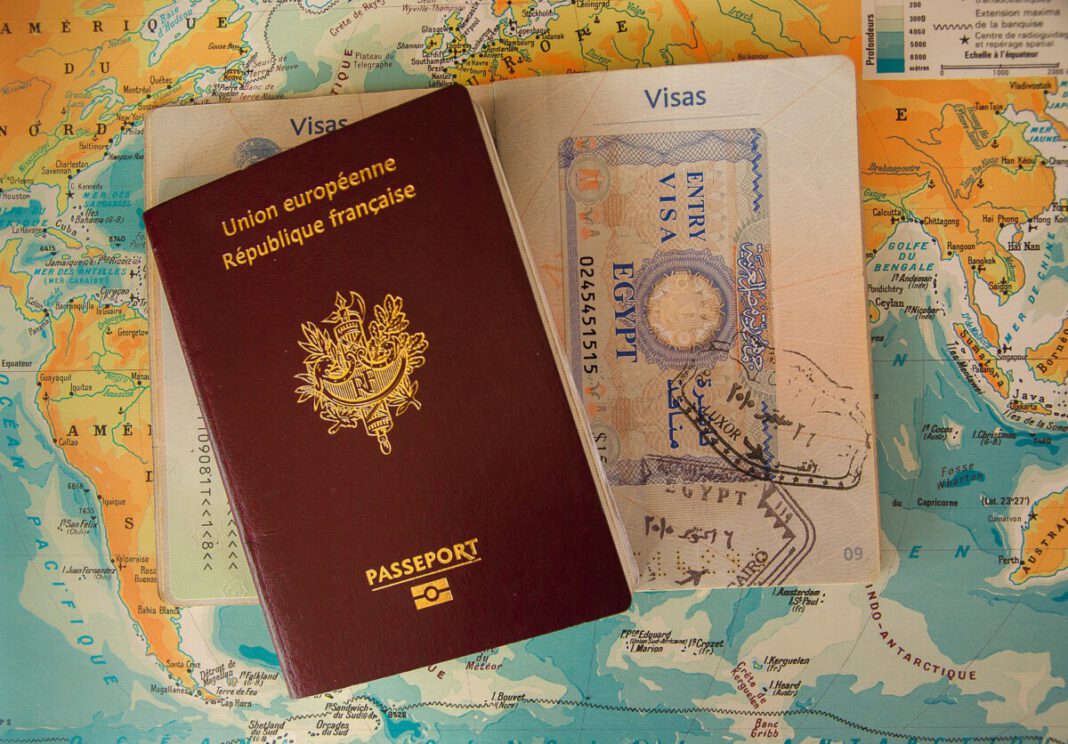The Dutch government have been actively discouraging dual citizenship for years now, in other words — enjoying another official citizenship in addition to your Dutch one.
If you have dual citizenship, it may be time to get in contact with your local branch of the Dutch authorities and find out whether or not you are still eligible for Dutch citizenship.
Dual citizenship and the Netherlands: what is double nationality — and why is it controversial?
We almost all have a nationality at birth, which is usually the country your parents had (permanent) residence in.
Some countries extend this ‘privilege’ to anyone on their soil, or within their borders, even if they or their parents weren’t actually living there. In the US, for example, many women have given birth within US borders, whether purposely or purely by coincidence, and the child is eligible for US citizenship.
Other countries will allow a child to be a citizen based on their parents’ nationality or ethnic background, even if the parents are no longer in that country, one of those nations is Turkey.
For others, after registration, and meeting the requirements necessary, you are then given ‘citizenship’ — meaning you are now officially Dutch, American, Japanese or anything in between.
Dutch citizenship means you can enjoy all the privileges that come with being a Dutchie. You have the exact same rights as everyone from the country — including diplomatic aid (say, you’d get in trouble on vacation — your embassy may step in), social services (unemployment benefits or student grants) as well as being able to cast your vote in elections.
It also means you’ll probably be given your very own passport, or at least some sort of official documents that prove your citizenship and allow you to travel.
Read More ︱Rutte Rules Out Dual Citizenship For Dutch in Brexit Britain
Why has dual citizenship and the Netherlands become an issue?
The reason this has become controversial is that certain people are enjoying the benefits of both, doubling up their personal privileges over those other citizens who merely have one citizenship.
In some cases, people with dual citizenship are enjoying social benefits from both countries. For example, working in the Netherlands for years — returning to their home country but continuing to receive those benefits while no longer part of Dutch society and also receiving benefits locally from that country. This, in particular, has happened a lot in Morocco, where some (former) migrants now live “luxurious” lives, at least in comparison to if they had had merely one nationality.
In other cases people are involved in political dealings in a ‘country of heritage’. In other words, they have never lived there, sometimes not even vacationed there, but are actively rallying others in their country of residence (where they currently live) to influence politics of the other nationality.
This happened in Turkey, where controversial PM Recep Tayyip Erdogan sought the presidency. Instead of concentrating on Turkish citizens in Turkey, Erdogan branched out all over Europe and rallied Turks to vote in favour of his reforms. He also began actively campaigning in those countries, which is extremely diplomatically controversial, sending out Turkish political figures to rallies around Europe. In the Netherlands the situation escalated when a Turkish minister was rejected and riots broke out in Rotterdam and Amsterdam.

Last but not least, some people are using their dual citizenship to ‘hide’ from the consequences of their actions. Some countries do not extradite their citizens and so, if you have their citizenship, you can commit acts of crime in one country and flee there to avoid prosecution.
Worse perhaps is that some figures are using their dual citizenship for terrorism. Many, for example, crossed into Islamic State-territory from neighbouring countries of which they were also citizens, and because they still have Dutch (or other) passports they may return at will to that country — potentially plotting terrorist attacks.
Now what? Go see your local embassy or hire an immigration lawyer!
The Dutch cabinet, Rutte III, is actively banning dual citizenship of new immigrants, with certain exceptions. This means you will be informed of having to make a choice — do you wish to remain or become a Dutch citizen, keeping your benefits and passport, or will you renounce it for your new/old nationality and lose them but keep your ‘current’ rights and benefits there?
Some people may automatically lose their citizenship, for example, because they were merely children when they migrated elsewhere and came of age in their new country, never having actively been part of Dutch society as adults. Others, as stated before, will have to make a choice sooner or later.
On the upside, it may also make the Netherlands safer, as certain people (like criminals abusing their citizenship and terrorists) will now also lose their citizenship and may not return to the country or be promptly arrested upon arrival as an ‘unwanted alien’.
You can, however, likely make a case out of your situation, asking to speak to the Dutch Naturalization and Immigration Service (IND) and/or lawyering up with an Immigration Lawyer who should be able to give you a clear picture of what your options are.
For everyone else little will change — so don’t worry too much just yet! The Dutch aren’t after you or trying to ruin your life, rather it’s trying to keep oversight of where the overseas money flows and who’s being a citizen of where. When in doubt, write to your local Dutch branch of the government, or just check the websites and give them a call!
What do you think of the Dutch government’s discouragement of duel citizenship? Tell us your thoughts in the comments below.
Feature Image: jacqueline macou/Pixabay
Editor’s note: This article was originally published in December 2017 but was fully updated in December 2020 for your reading pleasure.




Since 2003 Dutch citizens living abroad have been allowed to take another nationality and remain a Dutch citizen PROVIDED they take the nationality of their spouse or partner (m-m, f-f, m-f). Even though this change in the Dutch nationality law has been in effect for 15 years, many people still don’t know about this. So check whether the rules permit dual nationality in your case. And it’s not THAT difficult, you can do it yourself, just gather a number of documents (birth certificate of your spouse/partner, marriage certificate/proof of long-term relationship), have them officially certified (get an apostille — check with your state’s Secretary of State in the US), and file them. Also ask for a “Verklaring van Behoud Nederlanderschap”, makes renewing your passport a lot easier.
Also: if you have ever officially lived in the Netherlands after you turned 15, you are entitled to a (tiny, 2% for each year you were in the Old Country) part of the current AOW (Dutch old-age pension) payments. Even if you never worked there. No matter where you currently live or what nationality you have. The “Sociale Verzekeringsbank (www.svb.nl) can tell you all about it. If you qualify they will pay into any bank account anywhere, one a month, once a quarter or even once a year.
I am one of those people Benno mentions. Have lived in the US for 40+ years and had no idea I coul have retained my Dutch citizenship. In the meantime, my passport has expired:(
I also have worked in The Netherlands after the age of 15, while briefly living with my parents. Interesting that I would qualify for AOW! Not that I plan on doing anything about that.
However, am interested in regaining my Dutch citizenship…..
My whole family are Dutch. I was born in Australia simply by accident because my parents were living here at the time inbetween trips.
8yrs ago I decided I wanted to claim my Dutch heritage and get my Dutch passport. I was 52yr at the time. I put all my paperwork in, my parents old passports (as they had passed away by then) they took my photo fir the passport and money only to be told a month later they no longer do due citizenships and they had stopped it approx 10yr prior to my application…. it’s bull… I’m as much Dutch as the rest of my family and I deserve to be recognised as such. I don’t want anything from the Dutch giv, I have never worked there so I won’t be applying fir money or pension. I just want my passport to prove my heritage and that I am actually Dutch despite we’re I was born
The Dutch government sounds a little paranoid. Their reasons for denial of dual citizenship seems trivial to say the least. I thought they were a progressive nation. Maybe not
I can’t really see benefits, when you live in another country but still kept your Dutch citizenship. You can’t even open up a bank account so that the government can put your “pension” in local currency.Now they have to go through the trouble to make the money over in foreign currency (we are talking here about only 80 Euro a month) Maybe somebody can explain more benefits to me, beside voting.
Our two daughters are born in the USA in 1975 en 1977, we both are Dutch citizens and we worked in de USA from 1968 until 1978. So in 1978 we all returned to the Netherlands. Now it seems that my daughters are dual citizens and have to fill out a tax form every year, the Dutch banks will not give extra bank accounts to my grand kids because my daughters cannot prove USA citizenship by means of a SSC number. Can anyone understand this, my daughters have to pay for a SSC number so they can apply for an account for the childern.
I was born in NL and my family moved to NZ when I was 4 and Australia when I was 6. I’ve kept my Dutch citizenship all that time and I’m in my 50s now. I’d like to be dual Dutch Australian but was told I lose my Dutch citizenship if I become an Australian citizen when I applied after marrying an Australian citizen.
I could look into it further as the law changes every so often.
This article is attributed to Bobby Salomons. While the article is informative, please write grammatically correct english …